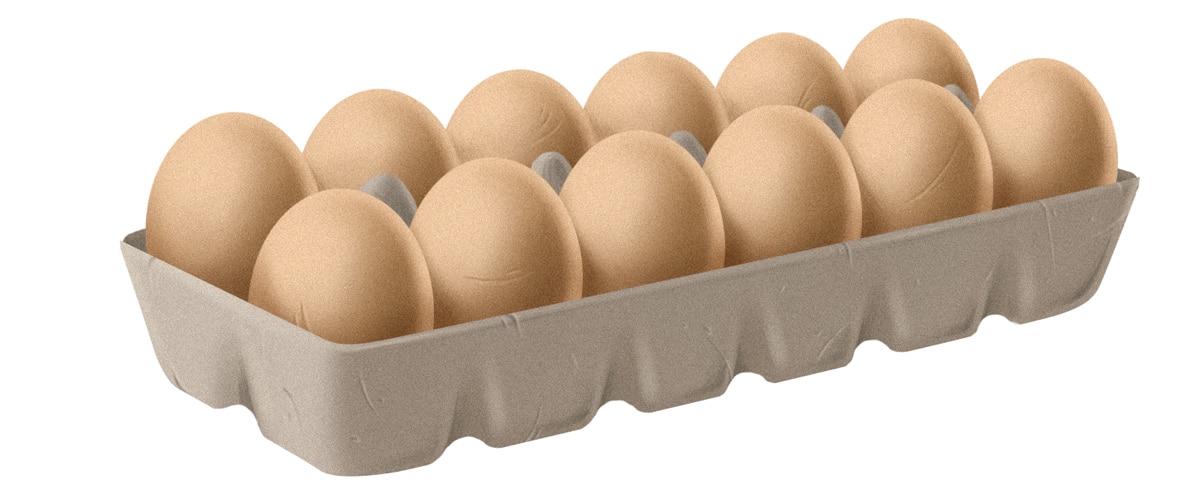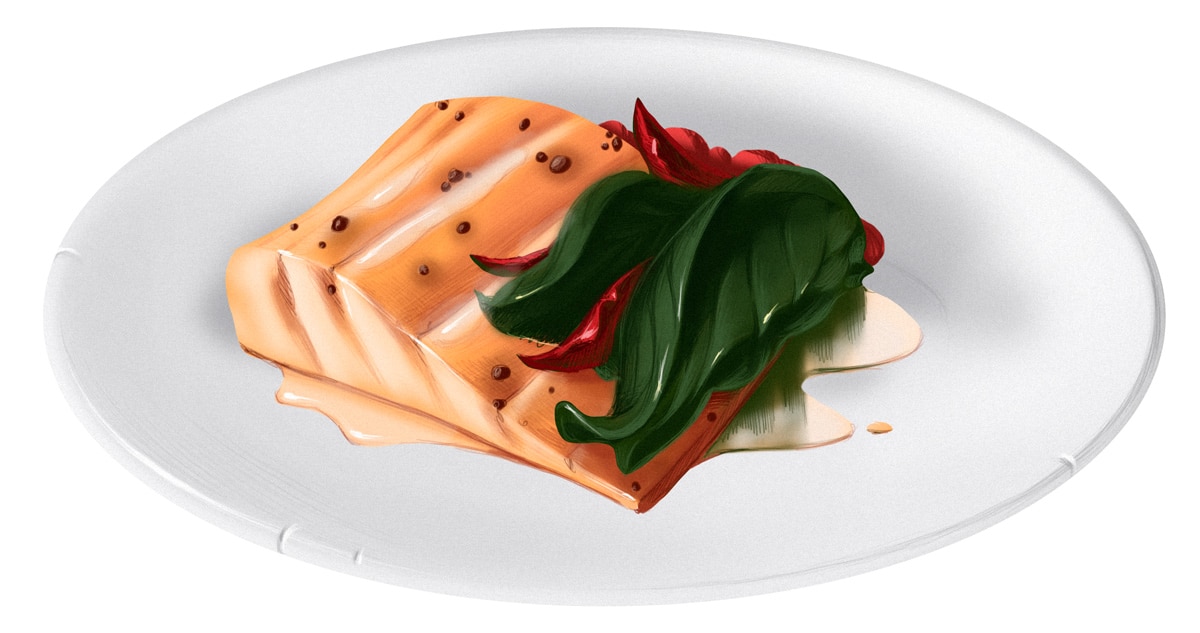
The Greek physician Hippocrates famously said to “let thy food be thy medicine and thy medicine be thy food.” Of course, there’s clearly a point where this breaks down - there’s no diet that can prevent or cure all disease, and modern medicine is pretty amazing. But in terms of chronic “lifestyle diseases” like heart disease, there’s a lot of truth to the idea that food has medicinal value - the power to help maintain or restore health. "Medicinal foods" are so good for you that it's possible to measure their specific benefits the same way you would measure the benefits of a drug.
But which foods? Well, take a look at five of them with research to support their value in real human diets. All of the studies in this list are in real humans actually eating whole foods: no mice, no rats, no test tubes, no weird purified supplements and extracts.
Also, none of them are funded by industry groups. These groups fund a lot of research, but they have a huge financial interest in making their particular food look good, so it’s a little debatable how reliable those studies are. Some people don’t worry about that, but here’s another way to look at it: if a food really is that great, shouldn’t there be at least one independently-funded study in its favor? In that spirit, this list doesn’t include any studies funded by trade or lobbying groups.
With all of that in mind, take a look at 5 foods with evidence-backed benefits for cardiovascular health:
1. Extra Virgin Olive Oil
Extra virgin olive oil (EVOO for short) has two things going for it: a very high proportion of monounsaturated fat and a lot of antioxidants. The antioxidants are the difference between the “extra virgin” oil and the regular oil. Research has consistently shown that antioxidant-rich olive oil improves markers of cardiovascular health.
For example, in this study, the researchers gave men either refined olive oil (few antioxidants) or EVOO and told them to cook with that instead of their regular cooking oil for 3 months. They found that the EVOO significantly reduced the oxidation of LDL cholesterol. As the study explains (it’s free full-text if you want to read it), oxidized LDL cholesterol is bad news for heart health, and preventing LDL oxidation is a positive sign:
“The free radical process of lipid peroxidation is involved in the pathogenesis of atherosclerosis through the formation of oxidized LDL. Consequently, the prevention of LDL oxidation by exogenous antioxidants could have a great potential for prevention of this major disease.”
Here’s another study. The researchers studied 200 healthy men and had them eat 25 mL of olive oil (a little more than 1 tablespoon, or about half a shot glass) every day. They compared olive oils with different levels of antioxidants and found that the high-antioxidant oil increased HDL cholesterol (that’s the kind everyone agrees on as “good”), reduced triglycerides, and reduced oxidative stress.
2. Eggs
Yep, eggs! Eggs have been demonized for their cholesterol content, but if you actually look at egg consumption, it seems to be neutral for heart health at worst - and some studies have found that it’s protective.
For instance, this study tested the theory that eating eggs is actually good for cardiovascular health. The researchers studied 38 healthy men and women. The subjects got no eggs for 2 weeks, and then they had a slow ramp-up: 4 weeks with 1 egg/day, 4 weeks with 2 eggs/day, and 4 weeks with 3 eggs/day.

The results were dramatic: blood pressure went down, HDL cholesterol went up, LDL cholesterol went down, and plasma choline went up. The benefits started at 1 egg and were maintained in the 2 and 3-egg groups. As far as the researchers could measure, eating eggs actually improved the subjects’ cardiovascular health, rather than damaging it.
3. Garlic
Garlic supplements are a thing, but this list is about foods, so here’s a study on ordinary garlic, eaten as a food. The subjects in this case were elderly, with an average age of around 70. The researchers gave them 0.1 gram of garlic per kilogram of bodyweight per day. To translate that into real-world measurements, here's how many cloves of garlic you'd have to eat to get the amount in the study (assuming that 1 clove of garlic weights approximately 3 grams):
That’s a realistic amount of garlic that a real human might actually eat in a day. And it really helped: the garlic reduced markers of oxidative stress and improved antioxidant capacity. Remember from above that oxidative damage is a big factor in cardiovascular disease.
4. Berries
OK, this is cheating a little bit, because “berries” is technically a food group and not a food. But berries in general are extremely rich in important antioxidants and phytochemicals that help protect against oxidative stress and other kinds of cardiovascular damage.
For proof of that, take a look at this study. 72 men and women were divided into a berry group and a control group. The berry group ate two servings of berries a day in different forms (raw, juiced, jam, etc.). After 8 weeks of that, they had improved platelet function (basically, that means they were less likely to get blood clots and have strokes), lower blood pressure, and higher HDL cholesterol.
5. Salmon (and other fatty fish)
The “active ingredients” that make salmon medicinal include omega-3 fats, selenium, iodine, and other vitamins and minerals, not to mention the high-quality protein. It’s good stuff, especially the wild-caught variety. And some research has found that it’s beneficial for heart health in various ways.
This study highlighted the benefits of eating salmon (and other fatty fish, too). The subjects were 126 Chinese women between age 35 and age 70. The women all ate lunch that had either fish or other meat that they normally ate. All the types of oily fish were good, but the salmon totally stole the show: it reduced triglycerides, markers of heart disease like apolipoprotein B, and inflammatory markers like interleukin-6 (IL-6) and tumor necrosis factor alpha (TNF-α).
In that study, the women ate fish for lunch every day, but another study on both men and women found that twice a week was enough to see benefits. In the study, 142 subjects were basically given two servings of fatty fish every week and instructed to eat them during the week whenever they wanted. Their triglyceride levels went down right on schedule.
The Limitations of Focusing on Particular Foods
With any list like this, it’s good to step back and take a look at the big picture. Overall diet patterns have a bigger influence on someone’s health than any one specific food:

- These aren’t the only five foods that promote good cardiovascular health.
- Adding blueberries or olive oil as a “supplement” isn’t a quick fix for a lousy diet.
Instead of focusing on specific foods, take these foods as signs of what to look for generally in a heart-healthy diet: antioxidant-rich plant foods (olive oil, garlic, berries), healthy fats (olive oil, fatty fish), and high-quality animal protein (eggs, fish). The idea of Paleo isn’t to mandate eating any one particular food; it’s to support a generally healthful type of diet, for heart health and everything else.





Leave a Reply